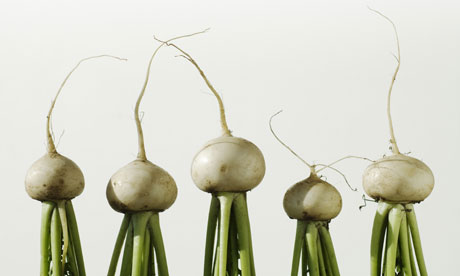THE turnip is a most hardy vegetable that can endure conditions other vegetables would shrivel up and die with. If old man turnip could converse with Man he would share the knowledge of sharp, prudent thinking. He could speak, not with cunning, but actuality, of the secrets of the seasons and when best to plant by them for the rest of the wellbeing of the garden. He would not favour the flowers, nor the aromatic herbs, but in plain speak contrast the properties of both trowel and soil, principally and practically, and to the point.
Should the peach ever sing to you, it would be of far-off places and of sunlit dreams; ignoring both weather conditions and grub habitation. The peach should not even know from which tree she fell, for her place is in the etheric realm of inspiration, and she lives in the hope of one day becoming more like unto a bird than a fruit. But at the time of that great springing from the branch, she cannot lift upward. . . and sorrowfully impacts the dirt below, again and again.
A well fed watermelon is a very content chap indeed. Usually quite asleep, but when roused is amiable and ready to please, providing that they might consume and swell in the manner that pleases them also. The watermelon would tell you that he is a mistaken fruit, left out of those realms, held back through his slovenliness.
The bean should explain the importance of social order. He would rather keep to his own kind, however, and is loathe to share any properties of the entire plant as he simply doesn't know of them.
The sugar cane embraces all men and is fulfilled by pleasing man. Sweetly seductive, the sugar cane seeks a marriage that overrides the other plants and would promise, promise, promise, day and night, anything she believes would please you to hear, true or not.





http://888spiritualscience.blogspot.com.au/2012/02/carrots-horseradishes-beetroot-effects.html Carrots, Horseradishes & Beetroot: effects on thinking
ReplyDeleteQuoting from:
Dynamics of Nutrition, The: The Impulse of Rudolf Steiner’s Spiritual Science for a New Nutritional Hygiene, by Gerhard Schmidt
Both red beets and radishes are true root formations, and they are characterized by Rudolf Steiner as follows: "The red beet stimulates thinking very strongly... but it does that in such a way that one actually wants to think. He who doesn't like to do this, doesn't like red beets either."